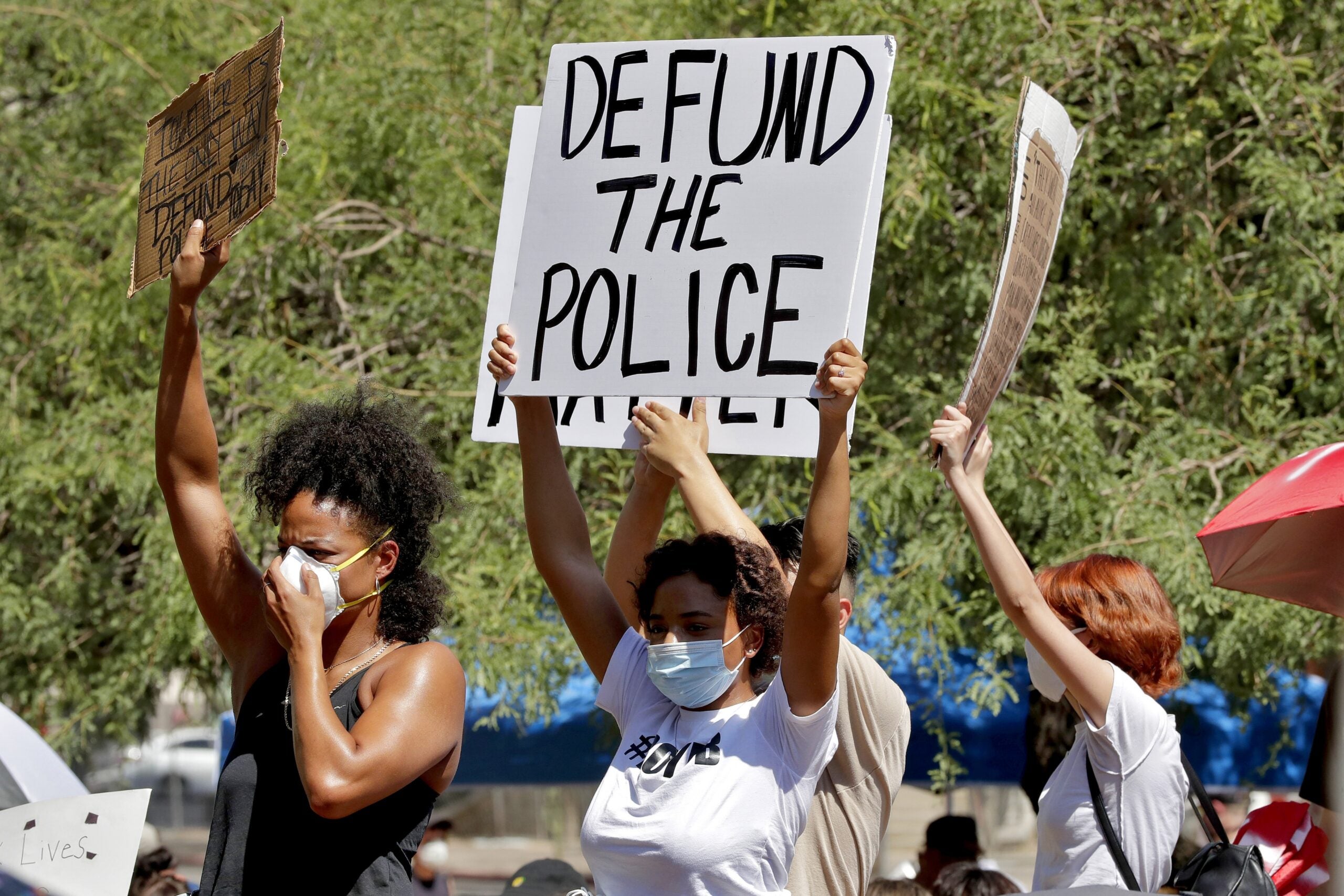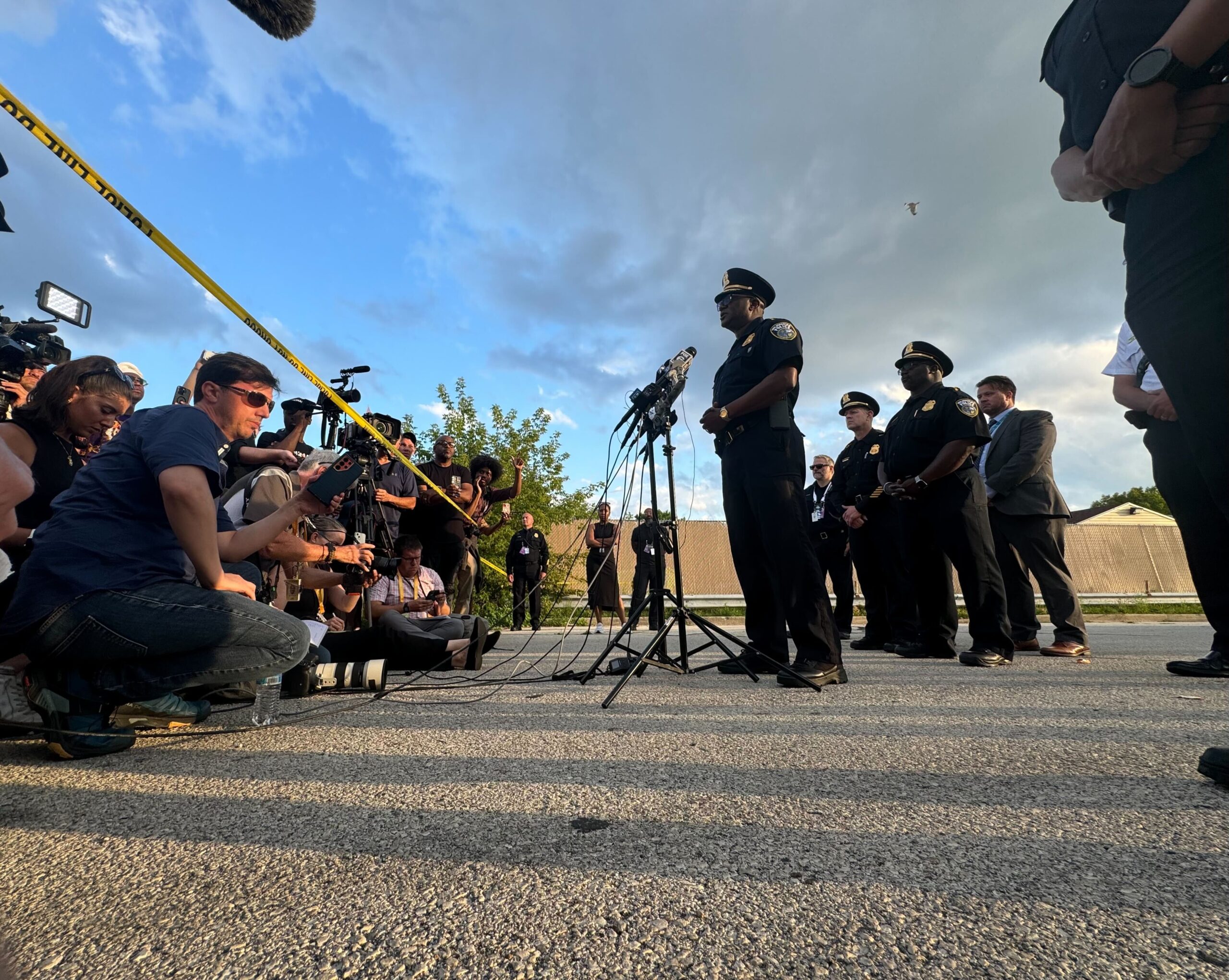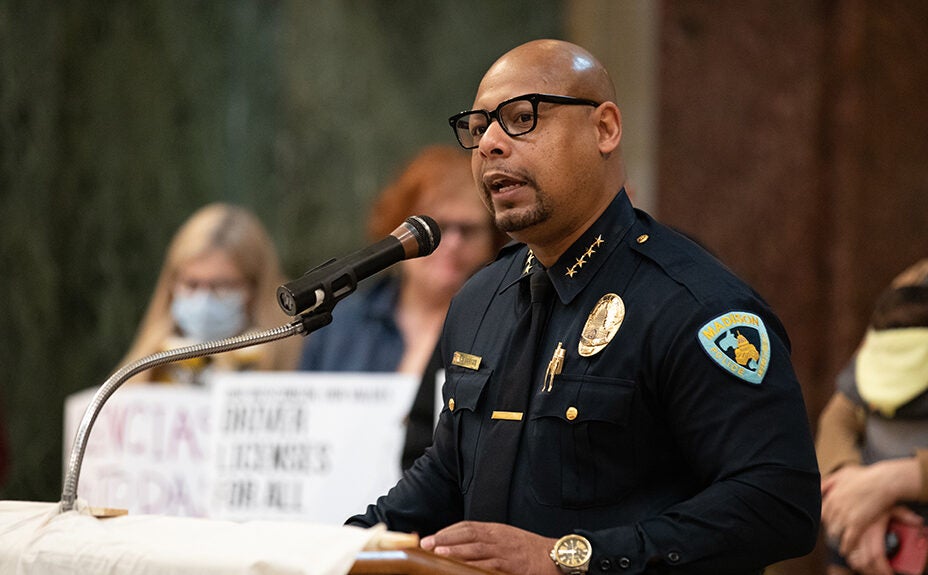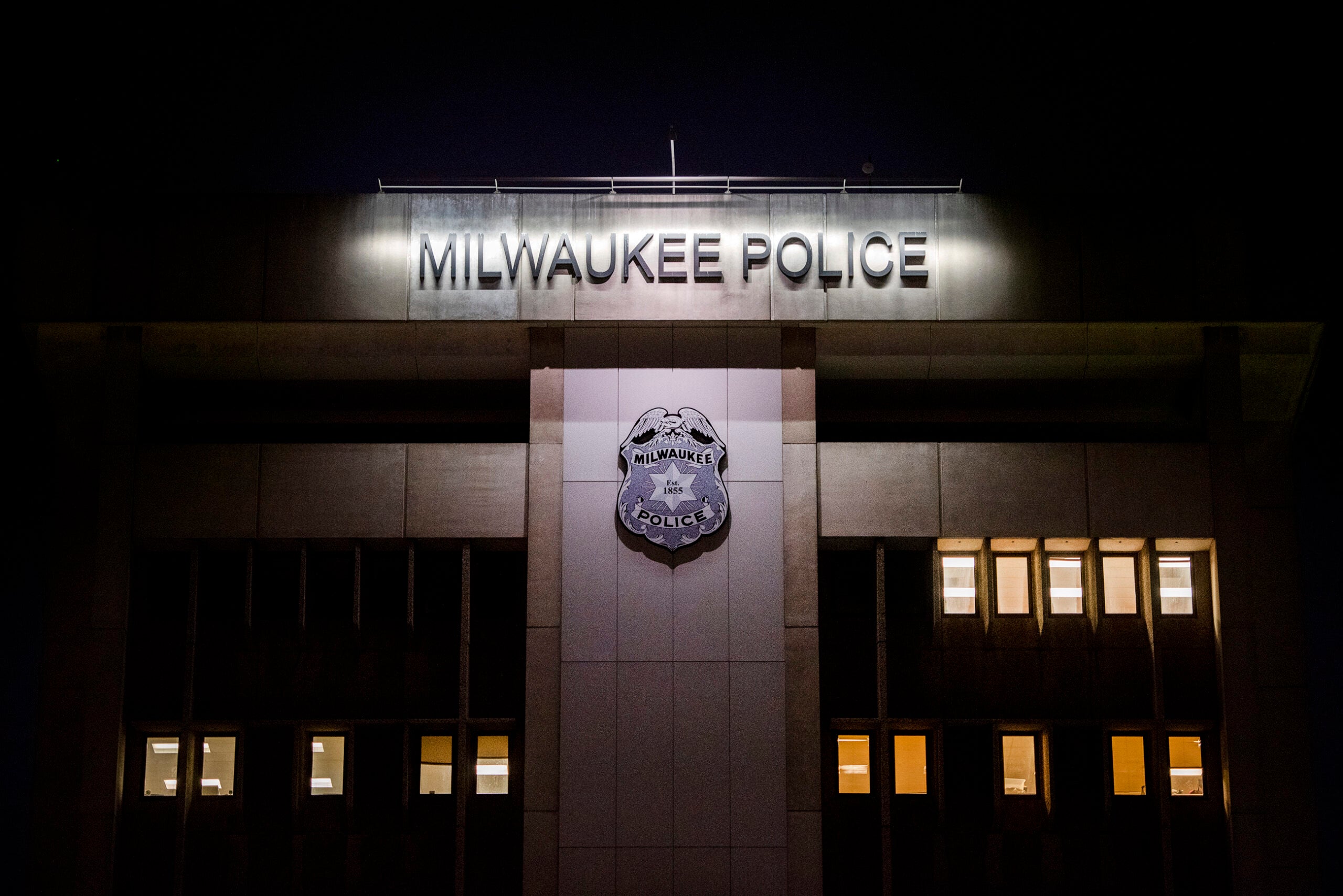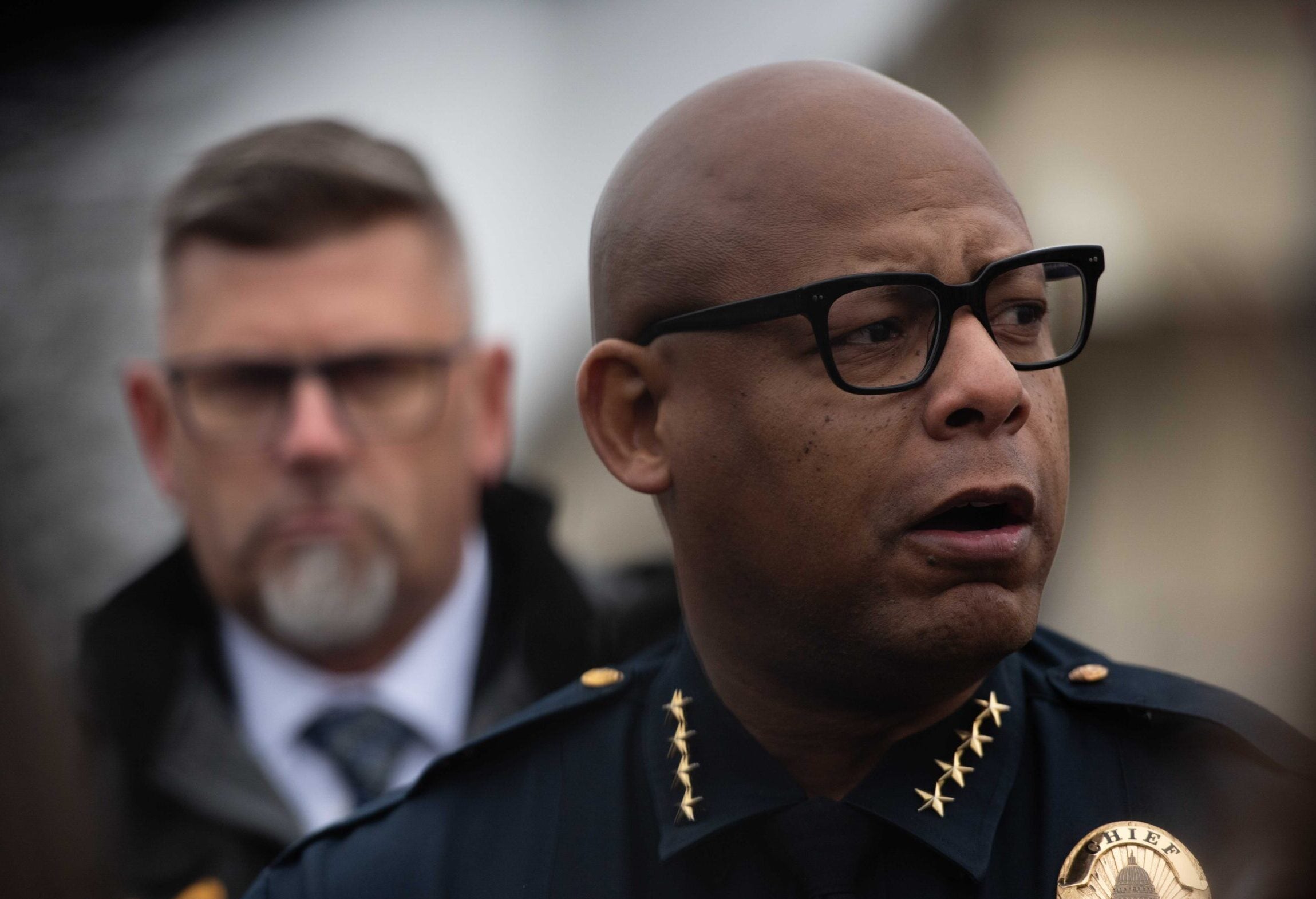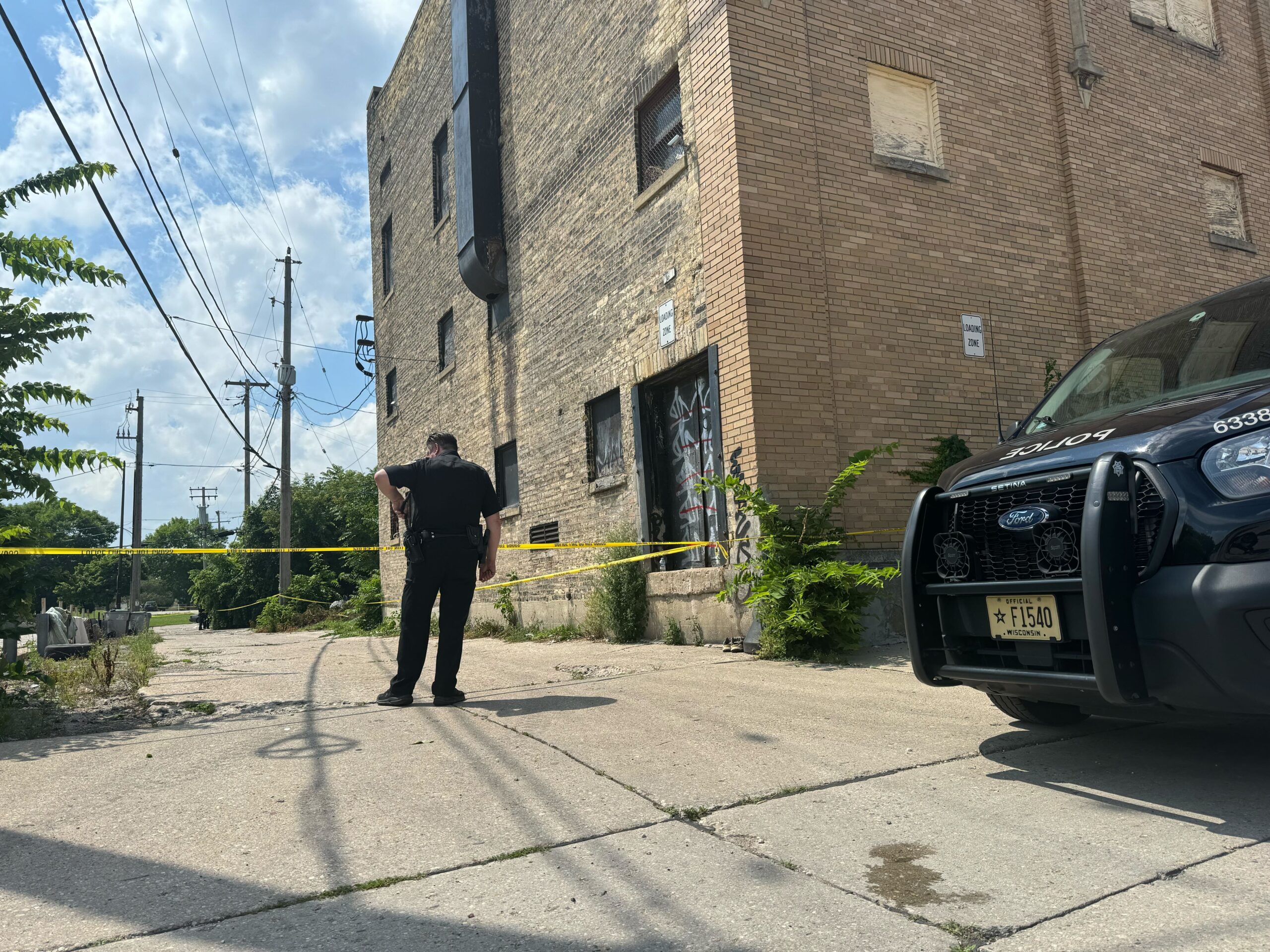Activists across the country protesting police brutality are calling for police departments to be defunded. While proposals have varied, it generally means shifting funding from police departments — which typically consume the largest portion of a city’s budget — to boost social programs.
In Milwaukee, the police department budget has exceeded the entire tax levy of the city for five consecutive years. The majority of the budget is used to pay for about 1,800 officers, and doesn’t include paying out police officer pensions when they retire. This year, Milwaukee Mayor Tom Barrett cut 60 officers.
Milwaukee Police Chief Alfonso Morales says defunding his department would mean longer response times for calls. Right now, the department receives about 700 calls a day, Morales said.
Stay informed on the latest news
Sign up for WPR’s email newsletter.
In an interview with WPR, Morales said losing 60 officers this year has meant there is no longer a sensitive crimes division working third shift — the unit investigates sexual assaults and child abuse cases.
“In addition, each of our seven districts has community engagement events where we identify a need in high crime areas and we help reduce crime — that had to be cut,” Morales said. “So that proactive work is being reduced.”
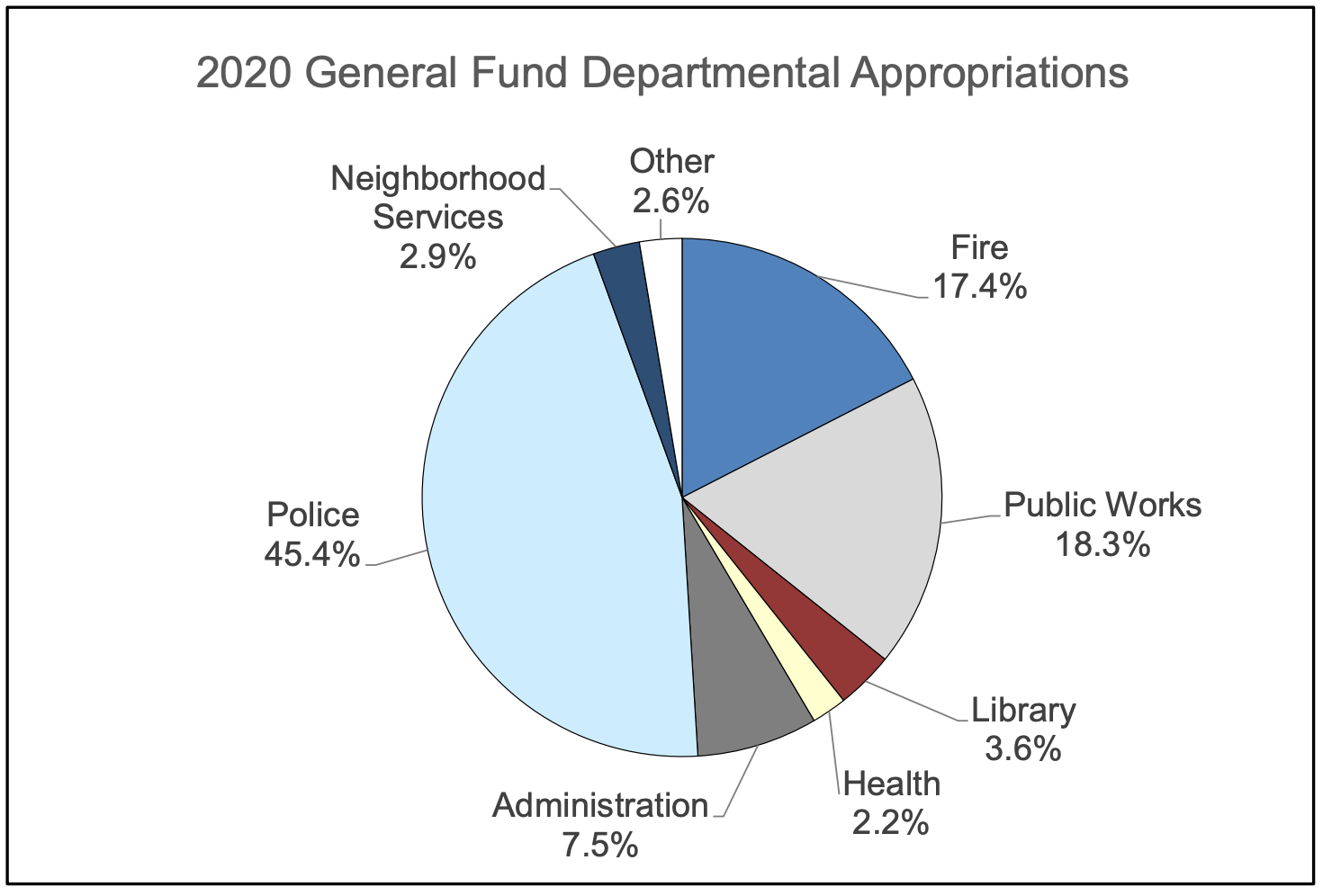
But activists say taxpayer money going to the Milwaukee Police Department should be spent on schools, health care and non-profit programs in the central city.
Darrol Gibson II is the managing director of Leaders Igniting Transformation, a nonprofit led by youth of color. He thinks it’s too late to improve community relations with the Milwaukee Police Department.
“The way they operate is really messed up,” Gibson said. “We need to make sure we have the ability to thrive and the ability to live, and we are not under a militarized force. We have an impoverished community that does not have access to food, clean water, and we have poor education and militarized police, and this is the outcome you get.”
The Community Coalition for Quality Policing, which includes more than two dozen organizations across Milwaukee, is asking city officials to immediately implement previous recommendations for police reform.
Giorgino “Gino” Fazzari, who owns the Calderone Club and San Giorgio Pizzeria in downtown Milwaukee, said under Morales’s tenure, there has been a positive impact on the community and businesses across the city, especially downtown.
“We’ve had past relationships with MPD that was not always forthcoming,” Fazzari said. “We didn’t know who the sergeant or the captains were. But since Chief Morales, we see a lot more police presence, and we’ve been here almost 40 years, so we’ve been through a lot of administrations. It’s good to know the police are here, building relationships with the community, and our customers as well.”
The Last 13 Days
Morales said his department supports the thousands of peaceful protesters who have marched across Milwaukee’s neighborhoods and into the surrounding suburbs over the last 13 days.
He said he believes that operationally, his officers and law enforcement partners, including the Milwaukee County Sheriff’s Department, have done a good job now and throughout the COVID-19 pandemic.
“One of the areas that we could have done better is our communication and our messaging to the public,” Morales said. “We should have communicated better to the voices that were out there.”
Over the weekend Chief Morales along with several MPD officers walked with hundreds of protesters who participated in the Milwaukee Bucks protest march in support of social justice. The walk started at Fiserv Forum and ended at Veterans Park. pic.twitter.com/ZkCi9k4jtd
— Milwaukee Police (@MilwaukeePolice) June 8, 2020
During a press conference last week, Morales compared how law enforcement across the country has been treated to being crucified like Jesus Christ.
“Two-thousand-years ago, an angry mob came before people to say, crucify that man, that man being Jesus Christ, what are angry mobs doing today? Law enforcement throughout our nation is being crucified,” Morales said during the press conference.
He was immediately under fire by members of the Milwaukee Common Council who released a statement listing the names of people who have died at the hands of Milwaukee police.
“Joel Acevedo. Sylville Smith. Dontre Hamilton. Derek Williams. Tony Bean. Frank Jude, Jr., Ernest Lacy. Those seven names are only a partial list of those who have died or been seriously injured while in the custody — or sometimes literally in the hands — of the Milwaukee Police,” the statement reads.
Milwaukee Alder Chantia Lewis, vice chair of the city’s Public Safety and Health Committee, said everyone who wants the protests to cease so things can go back to “normal,” doesn’t have a clear understanding of the issue at hand.
“Whose normal are we trying to go back to?” Lewis said. “We don’t want to go back to the normal where we aren’t valued, where we aren’t a full person where we aren’t protected to the same level as a white person.“
Community Input
Morales said he thinks he can rebuild community trust, and said he’s been engaging with people who can help build bridges.
“There is a lot of support out there, it’s going to take a little bit of time to identify the plans and see what groups we can work with going forward,” Morales said.
Morales did not specify which organizations he’s reached out to when asked by WPR. But Milwaukee activist Vaun Mayes, who has led several of the recent protests, questioned Morales’ dedication to working with community groups.
Mayes said when Morales talks about working with community organizations, he means church leaders who won’t hold him accountable.
“They don’t mean community groups doing grassroots community work,” Mayes said. “(Morales) will say what he thinks people want to hear. But they are flat out lies. He has done the opposite of the things he says.”
Community trust in police has been tested as early protests turned violent and tensions between police and protesters rose. While protests have been overwhelmingly peaceful, Milwaukee police used tear gas on protesters and shot rubber bullets when they felt threatened.
But Morales stands by his department’s use of force in response to protests.
He said the tear gas people have reported on was actually a combination of smoke and pepper spray. And it was used when “agitators” — not peaceful protestors — were throwing rocks and frozen water bottles at officers.
“We were focused on the individuals throwing rocks and projectiles, not to disperse crowds,” Morales said. “It was used correctly. When this is all over, we will do a full review.”
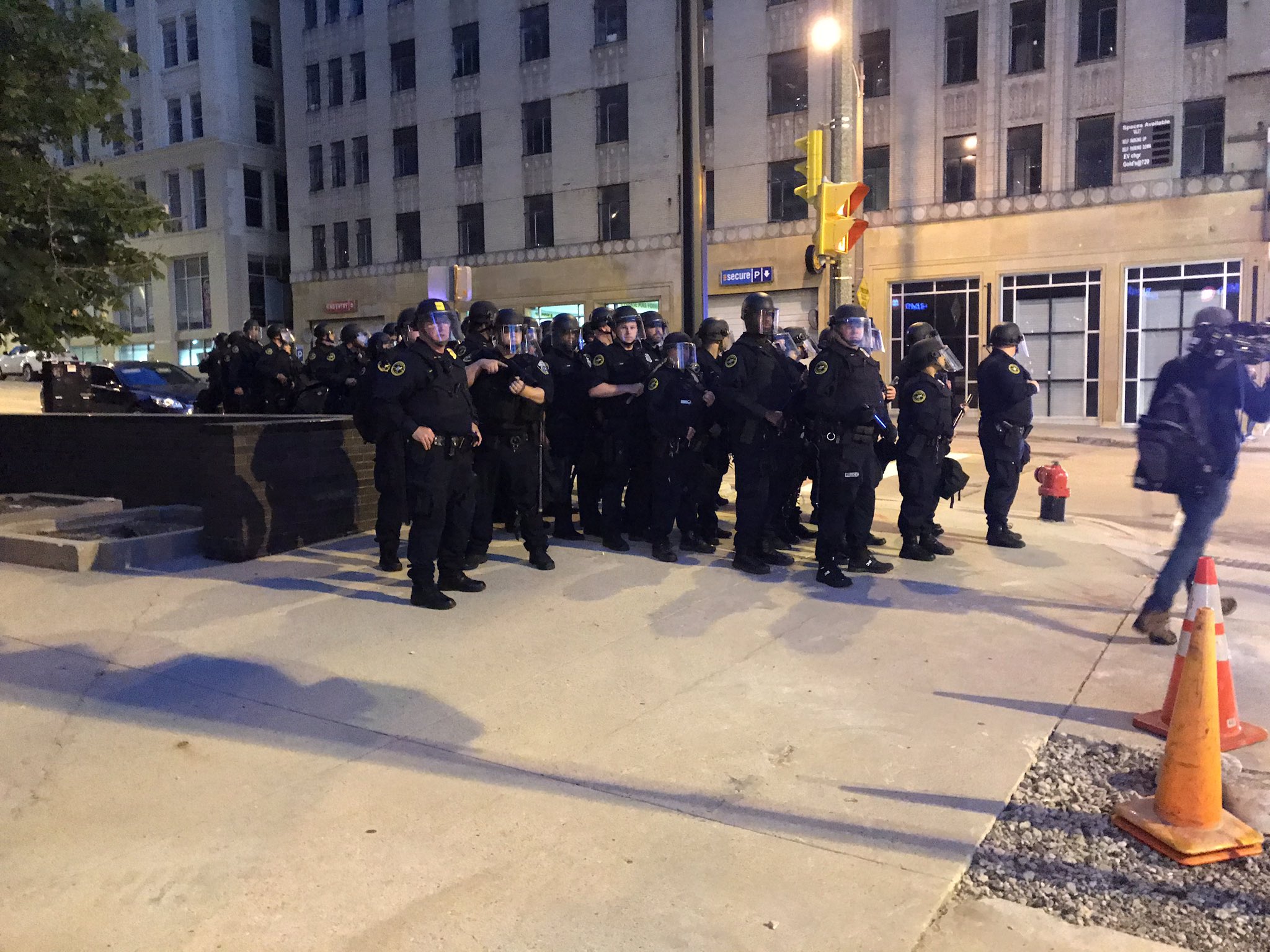
Morales has been with the department for 27 years and has served as chief since February 2018 when Edward Flynn retired after 10 years.
Morales started with the Milwaukee Police Department in 1993. He became a detective in 1999, working in the Criminal Investigations Bureau until 2009. After leaving that bureau, he became a lieutenant managing the Gang Crimes and Homicide units during the night shift. Morales also worked for the department’s Internal Affairs Division, its police academy and as a crisis negotiator commander.
In December, Morales was reappointed chief by Milwaukee’s Fire and Police Commission to a four-year term. The Commission will do a routine review of Morales on July 16.
Six Milwaukee alders — Lewis, Milele Coggs, Nikiya Dodd, Russell Stamper, II, Ashanti Hamilton and Khalif Rainey — released a statement asking the public to contact the commission to voice their thoughts about Morales.
“It is really sad to see the way the chief has handled the protests is more on a divisive tone than it has been on unifying,” Lewis told WPR. “Police chiefs across the country have joined in on these movements. But when you have these police officers in riot gear, that incites negative activity. We should, from a law enforcement side, take off the riot gear.”
In response Morales said, “everybody is entitled to their thoughts of the Milwaukee Police Department. We’re always open to suggestions, that’s part of the job and what goes with it. Positive or negative, we’ve got to keep moving forward.”
Moving Forward
Jennifer Cobbina is an associate professor at Michigan State University and the author of the book “Hands Up, Don’t Shoot,” which draws on nearly 200 interviews with residents of Ferguson, Missouri and Baltimore to better understand the role of race, place and policing in America.
Cobbina said the George Floyd protests taking place across the country and the calls for defunding police are not dissimilar to what has happened before. But Floyd’s death has resonated with so many more people.
“In the past, police have generally justified the killings of black and brown people by saying they feared for their lives and quite frankly, much of the general public have often sided with the police in thinking and saying ‘If he just did this, if he just said this, if he just avoided doing this,’” Cobbina said. “With George Floyd, it is impossible to justify.”
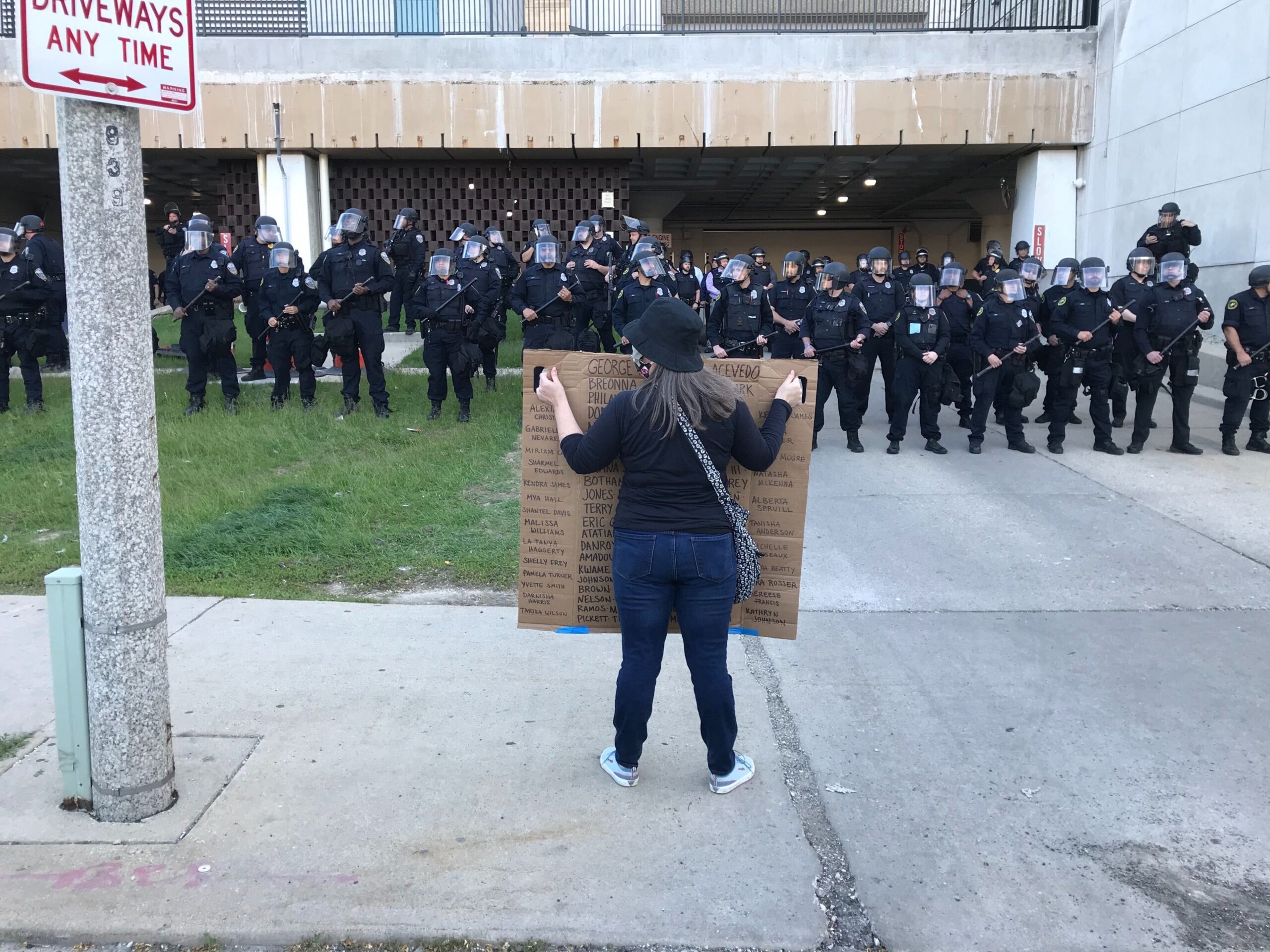
Cobbina said in order for healing to take place between police and communities, there has to be an acknowledgement of the role police institutions have played in producing systemic racism.
“Any attempt, without explicitly addressing the deep trauma of harmed communities, without explicitly addressing the role of the law, it will not work,” Cobbina said. “It will be mediocre at best or fail at worst. We can’t change history, but we can acknowledge it and move forward.”
Editor’s note: WPR’s Kyla Calvert Mason contributed reporting to this story.
Wisconsin Public Radio, © Copyright 2025, Board of Regents of the University of Wisconsin System and Wisconsin Educational Communications Board.
